World War I Leadership Characteristics That Could Make Future Military Leaders Successful
Nonfiction, History, Military, World War I, Germany, British| Author: | Major Robert J. Paquin | ISBN: | 9781786250223 |
| Publisher: | Verdun Press | Publication: | November 6, 2015 |
| Imprint: | Verdun Press | Language: | English |
| Author: | Major Robert J. Paquin |
| ISBN: | 9781786250223 |
| Publisher: | Verdun Press |
| Publication: | November 6, 2015 |
| Imprint: | Verdun Press |
| Language: | English |
This monograph analyzes the leadership characteristics that suggest a rapid acceptance of changing conditions in warfare among senior leaders and which leadership characteristics tend to suggest a more conservative approach. This conservative approach fails to recognize and adapt to the new emerging conditions. This research studied two World War I British leaders, General Sir Ivor Maxse and General Sir Hubert Gough, and compared and contrasted their leadership characteristics. From this, the research identified the most significant leadership characteristics that allowed these leaders to successfully adapt quickly in a time of transition.
The criteria for analysis was based on four leadership characteristics as defined in FM 22-100, Army Leadership: Revised Final Draft, dated June 1998. The four leadership characteristics used as evaluation criteria were personal courage, initiative, tactical skill, and learning.A comparison of the role of the two World War I leaders yields the conclusion that certain leadership characteristics allowed them to adapt more easily in an evolving environment and facilitated successful battlefield leadership. These characteristics were moral courage, initiative, tactical skill and the application of knowledge through effective, continual learning.
The monograph provides valuable insights into what leadership characteristics will allow current and future leaders to be successful, and unsuccessful, during a military transitional period. Our leaders must be creative, intuitive, dynamic, and able to make contemplated decisions, and have the courage and determination to act on them. The requirement for developing those leaders is an important one for the United States and a demanding one for the U.S. Army. An understanding of these leadership characteristics and the reasons that they facilitate successful battlefield leadership can provide an intellectual foundation beneficial to the Army as it prepares for future warfare.
This monograph analyzes the leadership characteristics that suggest a rapid acceptance of changing conditions in warfare among senior leaders and which leadership characteristics tend to suggest a more conservative approach. This conservative approach fails to recognize and adapt to the new emerging conditions. This research studied two World War I British leaders, General Sir Ivor Maxse and General Sir Hubert Gough, and compared and contrasted their leadership characteristics. From this, the research identified the most significant leadership characteristics that allowed these leaders to successfully adapt quickly in a time of transition.
The criteria for analysis was based on four leadership characteristics as defined in FM 22-100, Army Leadership: Revised Final Draft, dated June 1998. The four leadership characteristics used as evaluation criteria were personal courage, initiative, tactical skill, and learning.A comparison of the role of the two World War I leaders yields the conclusion that certain leadership characteristics allowed them to adapt more easily in an evolving environment and facilitated successful battlefield leadership. These characteristics were moral courage, initiative, tactical skill and the application of knowledge through effective, continual learning.
The monograph provides valuable insights into what leadership characteristics will allow current and future leaders to be successful, and unsuccessful, during a military transitional period. Our leaders must be creative, intuitive, dynamic, and able to make contemplated decisions, and have the courage and determination to act on them. The requirement for developing those leaders is an important one for the United States and a demanding one for the U.S. Army. An understanding of these leadership characteristics and the reasons that they facilitate successful battlefield leadership can provide an intellectual foundation beneficial to the Army as it prepares for future warfare.
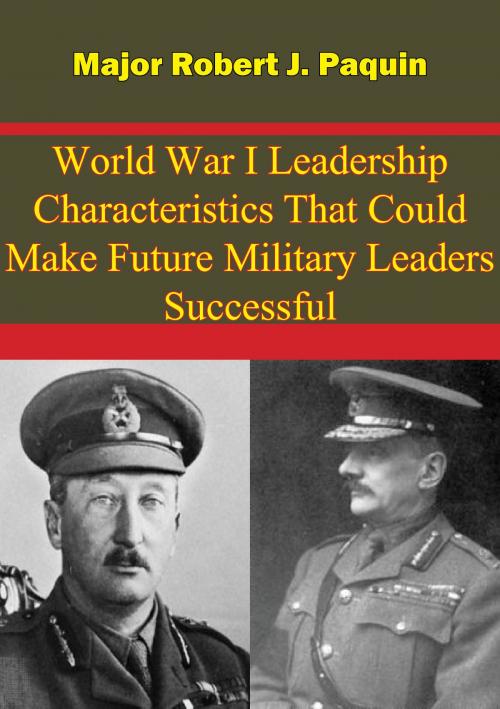

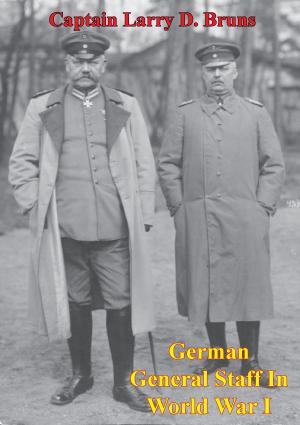
![Cover of the book Analysis Of Deep Attack Operations: Operation Bagration, Belorussia, 22 June - 29 August 1944 [Illustrated Edition] by Major Robert J. Paquin](https://www.kuoky.com/images/2014/august/300x300/9781782895459-fPbK_300x.jpg)
![Cover of the book The History Of The South African Forces In France [Illustrated Edition] by Major Robert J. Paquin](https://www.kuoky.com/images/2014/august/300x300/9781782893769-uUbA_300x.jpg)
![Cover of the book JAPANESE IN BATTLE 1st Edition [Illustrated Edition] by Major Robert J. Paquin](https://www.kuoky.com/images/2014/august/300x300/9781782896180-id7m_300x.jpg)

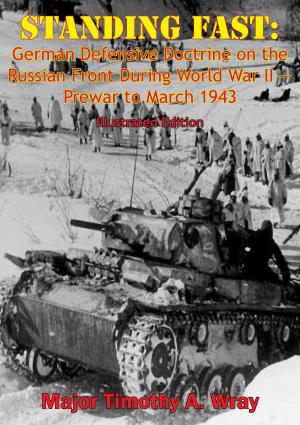

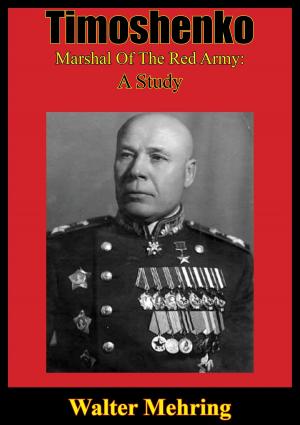
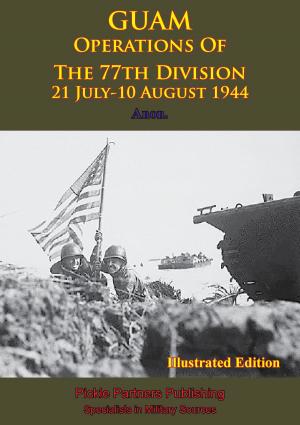

![Cover of the book Marines In World War II - Iwo Jima: Amphibious Epic [Illustrated Edition] by Major Robert J. Paquin](https://www.kuoky.com/images/2014/august/300x300/9781782892847-K6Mq_300x.jpg)


![Cover of the book The Official History Of The New Zealand Rifle Brigade [Illustrated Edition] by Major Robert J. Paquin](https://www.kuoky.com/images/2014/june/300x300/9781782892472-cpR2_300x.jpg)